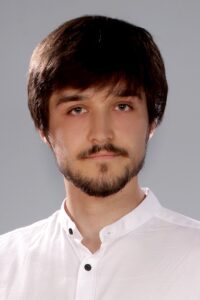Michał Grochowski
Michał Grochowski graduated from the Faculty of Automatic Control and Robotics at Gdansk University of Technology (GdańskTech). In 2004 he received a Ph.D. degree and in 2020 the habilitation, both in the field of Automation, Electronics and Electrical Engineering.
He is a professor and a Head of the Department of Intelligent Control and Decision Support Systems at GdańskTech and vice-chair of Digital Technologies Centre. He leads a team of scholars and PhD students from Department of Intelligent Control Systems and Decision Support at GdańskTech.
He is an author of about 100 scientific papers, supervisor of seven PhD students and more than 100 engineering and master's theses. He has participated in many national and international grants funded by national agencies, 5 Framework Program, COST, DIGITAL EUROPE.
AI and data analytics enthusiast. His current research focuses on the development of computational intelligence and machine learning methods and their reliable and trustworthy application in decision support systems, data analysis, fault detection and diagnostics, with a special attention to medicine.
Within the EUCAIM he leads the project “CLEAR-AI: Enhancing High-Resolution Image Segmentation Precision through Collaborative Learning of Deep Neural Networks for Accurate Assessment of Axillary Lymph Node Metastasis based on Full-Field Digital Mammography Analysis”.



